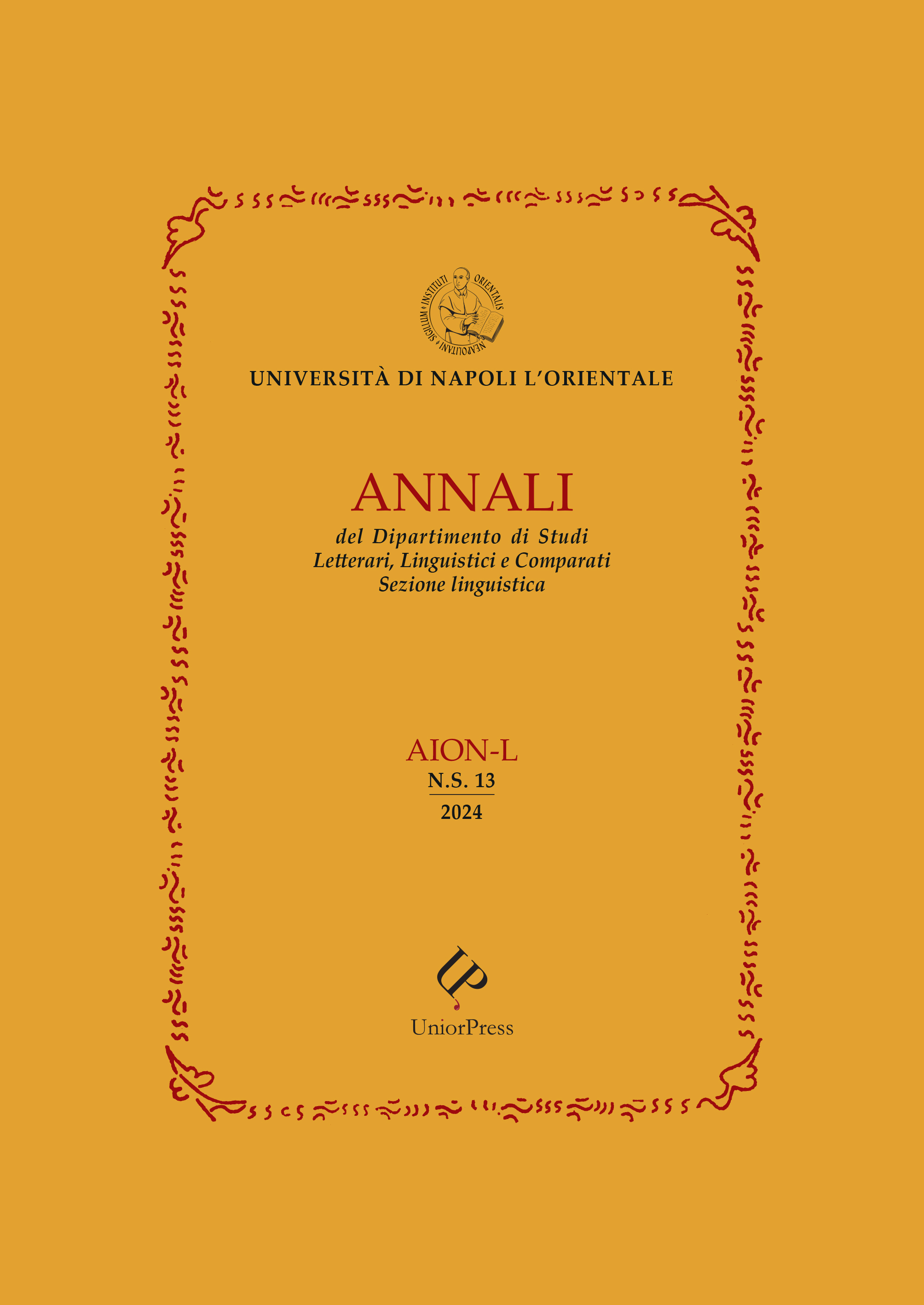Ancora sulle sorti dell’infinito soggetto. Un’indagine sul greco (e sul latino) del Nuovo Testamento
DOI:
https://doi.org/10.6093/2281-6585/11310Abstract
The present paper aims at investigating the syntax of subject infinitive in New Testament Greek, according to a corpus-based analysis and in comparison with Homeric and post-Homeric language. The data from the New Testament text show substantial continuity with the post-Homeric syntax, with respect to the previous Homeric stage: that is, a slight expansion of the contexts allowing an infinitive as subject. While in Homeric Greek infinitives are only confined to intransitive clauses, in the post-Homeric and in the New Testament language they may appear as transitive subjects, but with a very low frequency. We also analyze those occurrences showing the infinitive inflected with the genitive case (τοῦ + infinitive), provided with the value of intransitive subject, as an instance of non-canonically marked argument.





